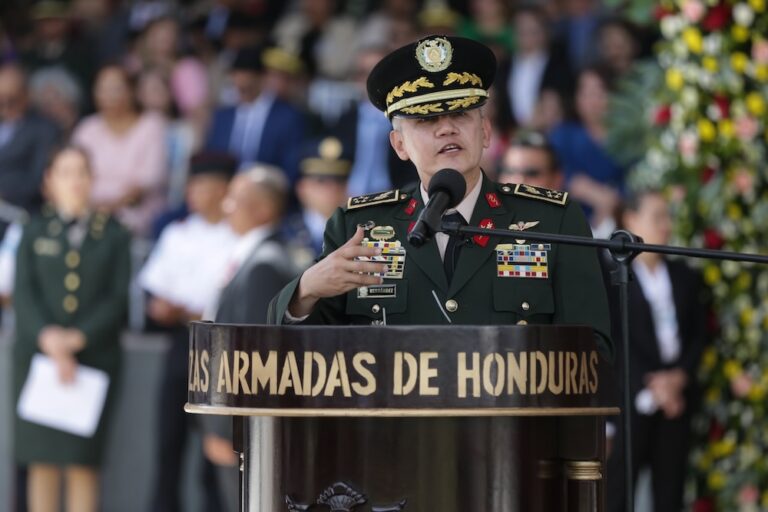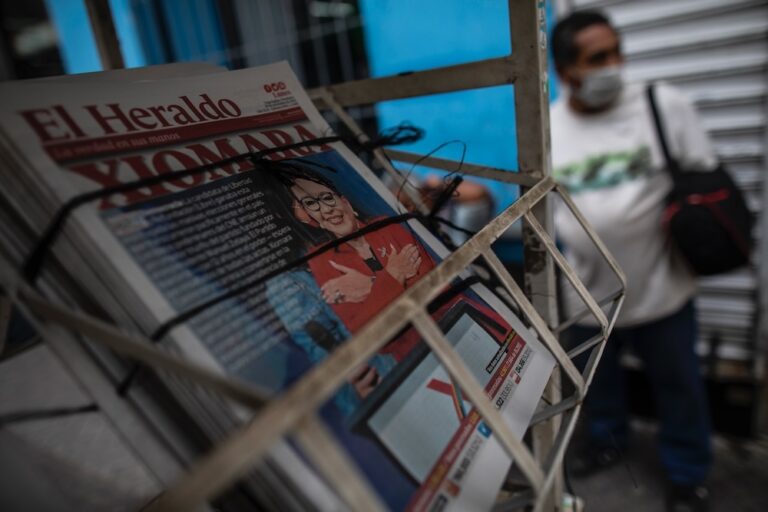Countries participating in the Universal Periodic Review on Hondruas expressed concern over the freedom of expression situation, especially the murders of nine journalists so far in 2010.
(AMARC/ARTICLE 19/C-Libre/FLIP/IFEX) – Geneva, 8 November 2010
• Honduras accepted all the recommendations presented by the participating countries during the Universal Periodic Review on Honduras
• Countries expressed their concern over the freedom of expression situation, especially the murders of nine journalists so far in 2010 and the lack of independence within the judiciary
• The IFEX–América Latina y el Caribe (IFEX-ALC) delegation met with more than 30 international delegations during the UPR
The Honduran state has accepted all 129 recommendations on human rights presented during the Universal Periodic Review that took place on 4 November. Among the recommendations that were accepted are the suggestions to increase the capacity of authorities to investigate the killings of journalists and investigate the abuses that took place during the 2009 coup d’état.
During the UPR, the majority of the participating countries expressed their concern over the number of journalists that have been killed in the country and made a special call for the state to implement effective measures for the protection of journalists and to combat impunity, particularly in connection with the human rights violations that took place during the coup d’état.
The Honduran Vicepresident, María Antonieta Guillén, who headed the Honduran delegation, expressed her “consternation and condemnation” of the killings of journalists and clarified that at present the investigations into these crimes suggest that they were not politically-motivated. Guillén also asked that the United Nations establish an Office of the High Commissioner for Human Rights in Honduras and highlighted the importance of the creation of an International Commission Against Impunity.
Honduras also promised to generate a discussion in its national Congress with the participation of civil society to modify its telecommunications legislation to bring it “in line with the agreements and international standards on human rights”, so that it will recognize community media, among other things. At the same time Guillén pointed out that access to information is a fundamental part of exercising and enjoying freedom of expression.
An IFEX-ALC* delegation, with the support of the International Network of Human Rights (INHR), was present during all of the UPR sessions on Honduras, and met with European and Latin American delegations to discuss the free expression situation and provide recommendations, the majority of which were welcomed by the various countries.
In March 2011, the Human Rights Council will once again meet in Geneva to adopt the final report which will be the critical path for Honduras to follow in the next four years, in terms of human rights. IFEX-ALC member organizations will be closely following the country’s compliance with these recommendations.
*The IFEX-ALC is an alliance of 17 organisations of the International Freedom of Expression Exchange network in Latin America and the Caribbean that promote and defend the right to freedom of expression in the countries of the region. The delegation to the UPR is lead by C-Libre, ARTICLE 19, AMARC and FLIP.


